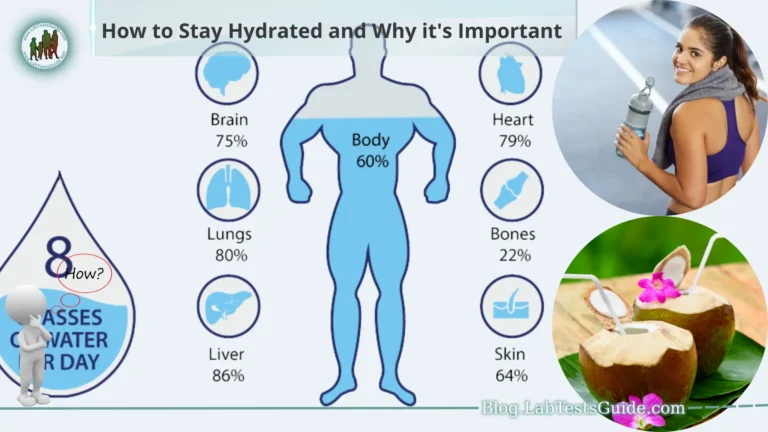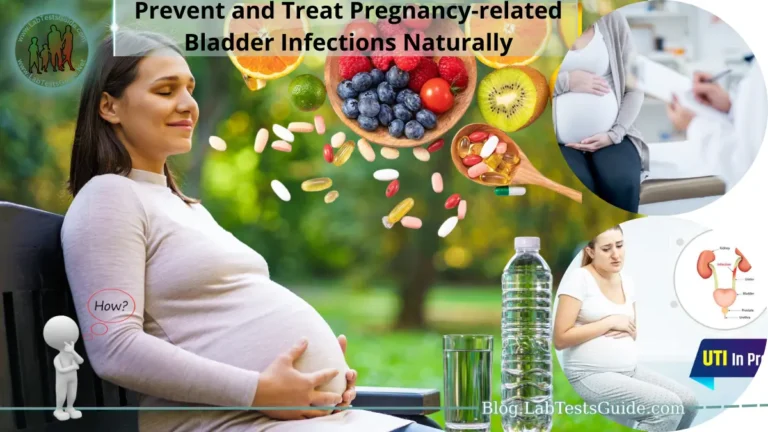Pregnancy is a remarkable and transformative journey for a woman as her body goes through various changes to nurture and support the growing life within her. However, this phase can also present certain health challenges, one of which is pregnancy-related anemia. Anemia is a condition characterized by a deficiency of red blood cells or hemoglobin in the blood, leading to reduced oxygen-carrying capacity.

During pregnancy, the body’s demands for iron and other essential nutrients increase significantly to support the developing fetus and placenta. This heightened requirement can sometimes exceed the mother’s ability to produce or obtain sufficient iron from her diet, resulting in pregnancy-related anemia. Iron deficiency anemia is the most common type of anemia observed during pregnancy.
Iron plays a critical role in forming hemoglobin, the protein responsible for transporting oxygen to various tissues and organs in the body. When the body lacks adequate iron, it can lead to a decreased production of hemoglobin, ultimately affecting oxygen delivery to both the mother and the developing baby.
Understanding Iron Deficiency Anemia:
Iron deficiency anemia is the most common type of anemia that occurs during pregnancy. To understand this condition better, let’s delve into the key aspects.
- Overview of Iron Deficiency Anemia: Iron deficiency anemia occurs when the body lacks sufficient iron to produce an adequate amount of hemoglobin. Hemoglobin is the protein in red blood cells that carries oxygen from the lungs to the rest of the body. Without enough iron, the body is unable to produce an adequate number of healthy red blood cells.
- Relationship between Iron Deficiency and Pregnancy: During pregnancy, the demand for iron increases significantly due to the expansion of blood volume and the needs of the growing fetus. If a pregnant woman’s iron intake or absorption is inadequate, her iron stores may become depleted, leading to iron deficiency anemia. This condition can have adverse effects on both the mother and the developing baby.
- Symptoms and Complications of Iron Deficiency Anemia: The symptoms of iron deficiency anemia during pregnancy may include fatigue, weakness, pale skin, shortness of breath, dizziness, rapid heartbeat, and difficulty concentrating. Severe anemia can further lead to complications such as preterm birth, low birth weight, and postpartum depression. It can also affect the mother’s ability to tolerate the physiological demands of pregnancy and childbirth.
- Risk Factors for Iron Deficiency Anemia during Pregnancy: Several factors can increase the risk of developing iron deficiency anemia during pregnancy. These include inadequate iron intake from the diet, a history of heavy menstrual bleeding, multiple pregnancies, short intervals between pregnancies, gastrointestinal disorders that affect iron absorption, and carrying twins or triplets.
- Importance of Iron-Rich Foods: Consuming a well-balanced diet that includes iron-rich foods is crucial for preventing and managing iron deficiency anemia. Good dietary sources of iron include lean meats, poultry, fish, beans, lentils, leafy green vegetables, fortified cereals, and dried fruits. Combining iron-rich foods with sources of vitamin C can enhance iron absorption.
- Role of Iron Supplements: In some cases, dietary modifications alone may not be sufficient to meet the increased iron requirements during pregnancy. Healthcare providers may recommend iron supplementation to ensure adequate iron levels. Iron supplements are available in various forms, such as ferrous sulfate, ferrous fumarate, and ferrous gluconate, and should be taken as prescribed.
- Enhancing Iron Absorption: Certain dietary factors can enhance or inhibit iron absorption. Pairing iron-rich foods with sources of vitamin C can improve iron absorption. On the other hand, substances like calcium, tannins (found in tea and coffee), and phytates (found in whole grains and legumes) can inhibit iron absorption. Managing the timing and combinations of food intake can optimize iron absorption.
Understanding the causes, symptoms, and risk factors associated with iron deficiency anemia during pregnancy is crucial for its prevention and treatment. By addressing iron deficiency early on and ensuring an adequate iron intake through diet and supplementation, pregnant women can reduce the risks and complications associated with anemia and promote optimal health for both themselves and their babies.
Prevention of Pregnancy-Related Anemia:
Here are some key strategies for preventing anemia during pregnancy.
- Iron-rich foods: Lean meats, poultry, fish, beans, lentils, tofu, spinach, kale, and other leafy green vegetables.
- Vitamin C-rich foods: Citrus fruits, strawberries, bell peppers, tomatoes, and broccoli. Vitamin C aids in iron absorption.
- Folate-rich foods: Fortified grains, leafy green vegetables, legumes, and citrus fruits. Folate is important for red blood cell production.
- Importance of Iron-Rich Foods: Encourage the inclusion of iron-rich foods in the daily diet. These foods provide the necessary iron for red blood cell production. Examples include red meat, poultry, fish, beans, lentils, tofu, fortified cereals, spinach, kale, and dried fruits. Consuming a variety of these foods helps meet iron requirements.
- Role of Iron Supplements: In cases where dietary intake is insufficient, healthcare providers may recommend iron supplements to ensure adequate iron levels. Iron supplements should be taken as prescribed and in the appropriate dosage. It is important to follow healthcare provider recommendations to prevent iron overload or other complications.
Enhancing Iron Absorption:
Maximizing iron absorption from dietary sources can help prevent anemia. Some tips to enhance iron absorption include.
- Pairing iron-rich foods with sources of vitamin C, such as consuming citrus fruits or drinking orange juice with iron-rich meals.
- Avoiding consuming calcium-rich foods or beverages (e.g., milk, cheese) at the same time as iron-rich meals, as calcium can inhibit iron absorption.
- Soaking, sprouting, or fermenting legumes and whole grains to reduce the content of phytates, which can hinder iron absorption.
- Regular Prenatal Care: Attending regular prenatal check-ups is crucial for monitoring the health of both the mother and the baby. Healthcare providers can conduct blood tests to assess hemoglobin levels and detect any signs of anemia. Early detection allows for timely intervention and treatment.
- Education and Counseling: Providing education and counseling to pregnant women about the importance of nutrition, iron-rich foods, and the prevention of anemia can be beneficial. Promote awareness of dietary guidelines, supplementation if necessary, and the impact of anemia on maternal and fetal health.
It is important for pregnant women to work closely with their healthcare providers to determine their specific iron needs and develop a personalized plan for preventing anemia. By adopting a healthy and balanced diet, considering iron supplementation when required, and optimizing iron absorption, pregnant women can significantly reduce the risk of developing pregnancy-related anemia and promote a healthy pregnancy.
Diagnosing Pregnancy-Related Anemia:
Here are the key components of diagnosing pregnancy-related anemia.
Routine Blood Tests during Pregnancy: As part of routine prenatal care, healthcare providers typically perform blood tests to monitor the health of the mother and the developing baby. These tests help identify any underlying conditions, including anemia. Blood samples are typically collected at the first prenatal visit and at regular intervals throughout pregnancy.
Hemoglobin and Hematocrit Levels:
Hemoglobin (Hb) and hematocrit (Hct) are two essential parameters measured to assess the presence and severity of anemia. Hemoglobin is a protein found in red blood cells that carries oxygen, while hematocrit represents the percentage of red blood cells in the total blood volume. Normal hemoglobin levels for pregnant women usually range from 11 to 13.5 grams per deciliter (g/dL), and normal hematocrit levels range from 33% to 41%.
Additional Diagnostic Tests:
In some cases, healthcare providers may conduct further tests to evaluate the cause and severity of anemia. These tests may include:
- Complete Blood Count (CBC): This test provides detailed information about the different types of blood cells, including red blood cells, white blood cells, and platelets.
- Serum Ferritin Test: Ferritin is a protein that stores iron in the body. Measuring ferritin levels helps assess iron stores, and low levels indicate depleted iron stores.
- Iron Studies: Iron studies measure various parameters related to iron metabolism, such as serum iron, total iron-binding capacity (TIBC), and transferrin saturation. These tests help determine the underlying cause of anemia and evaluate iron deficiency.
Consultation with Healthcare Provider: Once the diagnostic tests are conducted, it is important to discuss the results with the healthcare provider. They will interpret the test results, assess the severity of anemia, and determine the appropriate course of treatment or intervention. The healthcare provider may also investigate potential underlying causes of anemia that may require further evaluation or management.
Early detection and diagnosis of pregnancy-related anemia through regular blood tests during prenatal care are crucial for timely intervention and treatment. By monitoring hemoglobin levels and other related parameters, healthcare providers can identify anemia and implement appropriate measures to manage the condition effectively, promoting the health and well-being of both the mother and the baby.
Treating Pregnancy-Related Anemia:
Here are some common strategies for treating pregnancy-related anemia.
Medical Interventions for Anemia:
If anemia is severe or the hemoglobin levels are significantly low, healthcare providers may recommend medical interventions, including.
- Iron Supplements: Iron supplementation is often prescribed to pregnant women with anemia to increase their iron levels. The healthcare provider will determine the appropriate dosage and duration of supplementation based on the individual’s needs.
- Intravenous Iron Therapy: In cases of severe anemia or intolerance to oral iron supplements, intravenous iron therapy may be administered under medical supervision. This method delivers iron directly into the bloodstream, rapidly replenishing iron stores.
Iron Supplementation Guidelines:
When prescribed iron supplements, it is important to follow the healthcare provider’s instructions and guidelines, including.
- Taking supplements as directed: Typically, iron supplements are taken once or twice daily on an empty stomach or with vitamin C-rich foods to enhance absorption.
- Avoiding interactions: Certain substances, such as calcium, antacids, and certain medications, can interfere with iron absorption. It is important to take iron supplements separately from these substances.
- Managing side effects: Iron supplements can cause gastrointestinal side effects like constipation or nausea. Drinking plenty of fluids, increasing dietary fiber, and discussing any concerns with the healthcare provider can help manage these side effects.
Managing Underlying Causes:
- Addressing the underlying causes of anemia is crucial for effective treatment. If iron deficiency is due to poor dietary intake, dietary counseling can help educate and guide the individual on making appropriate dietary changes. In cases where an underlying gastrointestinal condition affects iron absorption, treating or managing that condition may be necessary.
Other Treatment Options:
In addition to iron supplementation and managing underlying causes, other treatment options may be considered based on individual circumstances.
- Blood Transfusion: In rare cases of severe anemia, a blood transfusion may be required to quickly increase hemoglobin levels.
- Erythropoietin-Stimulating Agents (ESA): In certain situations, such as chronic kidney disease or other specific medical conditions, erythropoietin-stimulating agents may be used to stimulate red blood cell production.
Regular Monitoring and Follow-up:
- Throughout the treatment process, regular monitoring of hemoglobin levels and iron status is essential. Healthcare providers will assess the response to treatment and adjust the management plan accordingly. This monitoring ensures that the anemia is appropriately managed and the individual’s iron levels are restored to a healthy range.
It is important to emphasize that the treatment of pregnancy-related anemia should be under the guidance and supervision of a healthcare provider. By following their recommendations, taking prescribed supplements, and addressing any underlying causes, pregnant women can effectively treat anemia and promote optimal health for themselves and their babies.
Lifestyle Recommendations:
Here are some lifestyle recommendations that can support the treatment process and enhance overall iron absorption and utilization.
- Balanced and Nutritious Diet: Focus on consuming a well-balanced diet that includes a variety of nutrient-rich foods. Incorporate iron-rich foods, such as lean meats, poultry, fish, beans, lentils, tofu, spinach, kale, and fortified cereals. Also, include sources of vitamin C, such as citrus fruits, strawberries, bell peppers, and tomatoes, as vitamin C enhances iron absorption.
- Adequate Iron Intake: Aim to meet the recommended daily intake of iron for pregnant women, which is around 27 milligrams (mg) per day. This can be achieved through a combination of iron-rich foods and, if necessary, iron supplements as prescribed by the healthcare provider.
- Avoidance of Iron Inhibitors: Certain substances can hinder iron absorption. To optimize iron absorption, it is advisable to avoid consuming calcium-rich foods or beverages (e.g., milk, cheese) at the same time as iron-rich meals, as calcium can inhibit iron absorption. Similarly, it is recommended to avoid consuming tea or coffee with meals, as these beverages contain tannins that can also reduce iron absorption.
- Cooking Techniques: Certain cooking techniques can help enhance iron absorption. Cooking foods in cast iron cookware can increase the iron content of the food. Additionally, soaking, sprouting, or fermenting legumes and whole grains can reduce the phytate content, thereby enhancing iron absorption.
- Timing of Iron Supplements: If taking iron supplements, follow the healthcare provider’s instructions regarding timing and dosage. It is often recommended to take iron supplements on an empty stomach or with vitamin C-rich foods to maximize absorption. Avoid taking iron supplements at the same time as calcium or other substances that can interfere with iron absorption.
- Hydration and Fiber Intake: Drink an adequate amount of fluids, such as water, throughout the day to maintain hydration. Consuming an adequate amount of dietary fiber from fruits, vegetables, and whole grains can help prevent constipation, which can be a side effect of iron supplementation.
- Stress Management and Rest: Stress and inadequate rest can impact overall health and contribute to fatigue. It is important to prioritize stress management techniques, such as relaxation exercises, meditation, and sufficient rest, to support overall well-being and energy levels.
- Regular Physical Activity: Engage in regular physical activity that is appropriate for your stage of pregnancy. Consult with your healthcare provider about suitable exercises that can help maintain energy levels, promote circulation, and enhance overall health.
- Regular Prenatal Check-ups: Attend regular prenatal check-ups as recommended by your healthcare provider. These check-ups allow for ongoing monitoring of your iron levels and overall health, ensuring timely intervention and management if needed.
By implementing these lifestyle recommendations, pregnant women can support the prevention and management of pregnancy-related anemia. It is important to work closely with healthcare providers to tailor these recommendations to individual needs and circumstances, ensuring the best possible outcomes for both the mother and the developing baby.
Complications and Risks:
Here are some potential complications and risks associated with pregnancy-related anemia:
Maternal Complications:
- Fatigue and Weakness: Anemia can cause persistent fatigue, weakness, and a reduced ability to perform daily activities, affecting the mother’s overall quality of life.
- Increased Risk of Infections: Anemia weakens the immune system, making pregnant women more susceptible to infections, such as urinary tract infections and respiratory infections.
- Postpartum Depression: Women with anemia during pregnancy may have a higher risk of developing postpartum depression, a mood disorder that affects a woman’s emotional well-being after childbirth.
- Preterm Birth: Severe anemia has been associated with an increased risk of preterm birth (delivering the baby before 37 weeks of gestation), which can lead to various complications for the baby.
Fetal and Neonatal Complications:
- Low Birth Weight: Anemia during pregnancy is associated with an increased risk of delivering a baby with low birth weight (less than 2,500 grams). Low birth weight infants may face health challenges and have a higher risk of developmental issues.
- Delayed Growth and Development: Inadequate oxygen supply due to anemia can affect fetal growth and development, potentially leading to long-term developmental delays and impairments.
- Iron Deficiency in the Baby: Anemic mothers may have lower iron stores, which can impact iron levels in the baby. Iron deficiency in infants can affect cognitive development and overall growth.
- Increased Maternal and Neonatal Mortality: In severe cases of untreated or severe anemia, there is an increased risk of maternal and neonatal mortality, particularly in resource-limited settings or when anemia is accompanied by other complications.
- Impact on Maternal Health and Recovery: Pregnancy-related anemia can exacerbate the physiological demands of pregnancy, making it more challenging for the mother to cope with the changes in her body. It can affect the mother’s ability to tolerate labor and childbirth and may result in prolonged recovery postpartum.
It is important to note that prompt diagnosis, appropriate treatment, and ongoing management of pregnancy-related anemia can significantly reduce the risk of these complications. Regular prenatal care, including monitoring hemoglobin levels and addressing anemia in a timely manner, is crucial to ensure the best possible outcomes for both the mother and the baby. Healthcare providers play a vital role in identifying and managing anemia during pregnancy to minimize complications and risks.
Postpartum Management:
Here are some key considerations for managing anemia in the postpartum period:
- Monitoring Hemoglobin Levels: Regular monitoring of hemoglobin levels is important in the postpartum period to assess the status of anemia and to determine if further intervention or treatment is needed. Healthcare providers may recommend blood tests to evaluate hemoglobin levels within a few weeks after childbirth.
- Iron Supplementation: If iron supplementation was initiated during pregnancy, healthcare providers may continue the supplementation in the postpartum period to replenish iron stores. The dosage and duration of supplementation will be determined based on the individual’s needs and the healthcare provider’s guidance.
- Dietary Recommendations: Emphasize a nutritious diet that includes iron-rich foods to support the recovery and replenishment of iron stores. Include foods such as lean meats, poultry, fish, beans, lentils, tofu, fortified cereals, spinach, and other leafy green vegetables. Consuming vitamin C-rich foods, such as citrus fruits, can enhance iron absorption.
- Rest and Recovery: Adequate rest and recovery are important for postpartum healing. Focus on getting sufficient sleep, managing stress, and seeking support from family and friends. Taking care of oneself promotes overall well-being and facilitates the recovery process.
- Postpartum Follow-up: Attend postpartum follow-up visits as recommended by the healthcare provider. These visits provide an opportunity for healthcare providers to assess the recovery progress, address any concerns or complications, and ensure appropriate management of anemia in the postpartum period.
- Breastfeeding Considerations: If the mother is breastfeeding, it is important to ensure adequate nutrition and iron intake to support both her own health and the production of breast milk. Healthcare providers may provide guidance on maintaining a balanced diet and potentially adjusting iron supplementation if needed.
- Education and Counseling: Offer education and counseling to mothers regarding the importance of postpartum iron management and maintaining a healthy lifestyle. Discuss the signs and symptoms of anemia to promote early detection and intervention if anemia persists or worsens.
Postpartum management of pregnancy-related anemia aims to support the mother’s recovery, replenish iron stores, and ensure optimal health and well-being. By following healthcare provider recommendations, maintaining a nutritious diet, and attending postpartum follow-up visits, women can effectively manage anemia and promote their overall postpartum health.
Conclusion:
Pregnancy-related anemia is a common condition that can have significant implications for both the mother and the developing baby. However, with proper prevention, diagnosis, and management, the risks and complications associated with anemia can be minimized.
Prevention of pregnancy-related anemia involves maintaining a balanced diet, ensuring adequate iron intake, and following lifestyle recommendations. Regular prenatal care, including routine blood tests, is crucial for early detection and diagnosis of anemia. Timely intervention through medical interventions, such as iron supplementation or intravenous iron therapy, can effectively treat anemia and restore iron levels.






